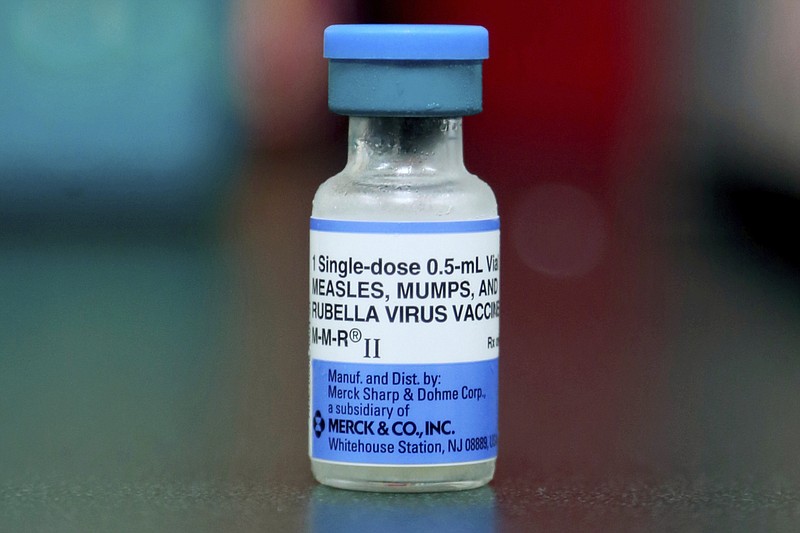Among the disruptions the COVID-19 pandemic created was an interruption to routine preventative health care.
The Missouri Department of Health and Senior Services highly encourages parents to ensure their children get caught up on (or stay on track) with routine vaccinations starting at birth to help protect them from serious diseases.
Centers for Disease Control and Prevention data show the effect of the COVID-19 pandemic on routine childhood immunizations.
According to the CDC, during the 2020-22 school year, national vaccination coverage dropped from 95 percent to below 94 percent, which amounts to about 35,000 more children across the United States entering kindergarten without documentation of completed vaccinations against common diseases.
"Moreover, nearly 400,000 fewer children entered kindergarten than expected. Those children too, might not be up to date on their routine vaccinations -- further evidence of how pandemic-related disruptions to healthcare and education could have lingering consequences for school-age children," according to a DHSS news release.
Making sure children see their doctors for well-child visits and recommended vaccines is one of the best things parents can do for their children, Paula Nickelson, DHSS acting director, said in the release.
"Many vaccine-preventable diseases can have such devastating impacts, especially on vulnerable children," she said. "Assuring your child receives the vaccines can help you keep your child as healthy as possible."
Donna Seidel, assistant director of nurses at Cole County Health Department, said the department encourages all age groups to receive vaccines as recommended by the CDC.
"Anyone, with or without insurance, can come to the health department for vaccines every day," she said. "For some vaccines, there may be a charge if they do not have insurance or if their insurance does not cover vaccines. We do follow ACIP (Advisory Committee on Immunization Practices) guidelines when offering vaccines. Our immunization coordinator keeps track of clients that we see here to send reminders for follow-up vaccines."
Routine vaccinations during childhood help prevent 16 diseases -- chickenpox, diphtheria, influenza, hepatitis A, hepatitis B, Hib (haemophilus influenzas type b), HPV (human papillomavirus), measles, mengococcal, mumps, polio, pneumococcal, rotavirus, rubella, tetanus and whooping cough.
Missouri ranks 30th among states for children completing one or more well-child visits in 2021.
"Childhood vaccines have all been studied in depth to determine the most appropriate time in a child's life for them to be given," said Rachel Orscheln, associate professor of pediatrics in the division of infectious diseases at Washington University in St. Louis Children's Hospital. "We really want to vaccinate children at the earliest possible moment because young children, particularly infants, can be at risk of severe illness from certain infections."
Among children born from 1994-2018, vaccinations will prevent an estimated 936,000 early deaths, eight million hospitalizations and 419 million illnesses.
The CDC funds the Vaccines for Children program, which provides free vaccines to children who qualify. Children 18 and younger are eligible to receive free vaccines if they are Medicaid-eligible, do not have health insurance, are American Indian or Alaskan Native or are under-insured.

